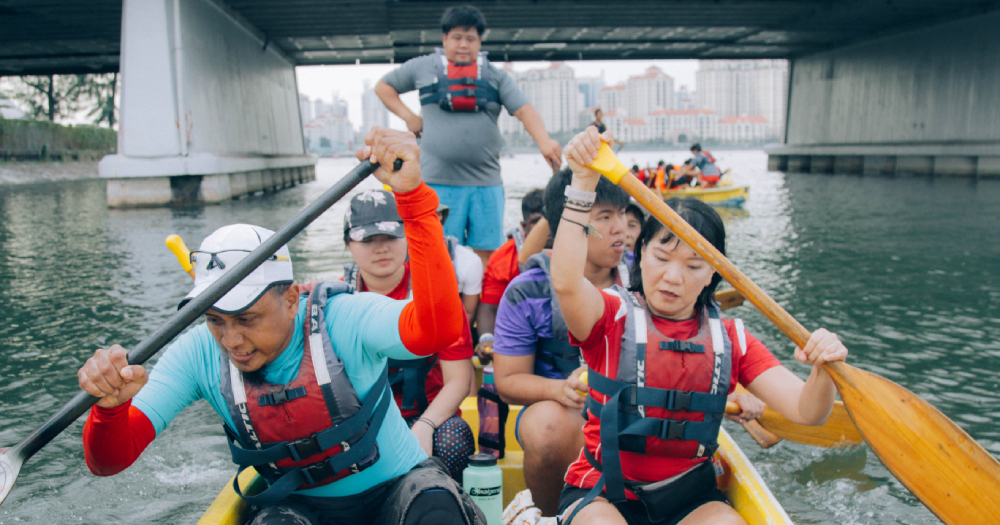Portrait Mode is a new photo essay series of Singapore and all the people and things in it, seen through the lenses of our young photographers at Mothership.
This week, we meet the Different Dragons, a Singaporean competitive dragon boat team partly crewed by people with disabilities (PWDs). The team are coached and managed by Society Staples -- a social enterprise whose mission is to create an inclusive future where PWDs are embraced as part of mainstream society. We hopped onto their boats and witnessed their grit and sweat as they showed us that being different wasn't holding them back.
It's 9:45am on a Sunday and the Different Dragons have just completed their warm-up run around the National Stadium. Debra Lam, 26, and Ryan Ng, 27, are holding a briefing for the volunteers, who will be assisting their teammates who have disabilities throughout the training session.
Lam and Ng are the founders of Society Staples, and since the start of the year, they've been coaching the Different Dragons.
Lam herself is a former national dragon boater.
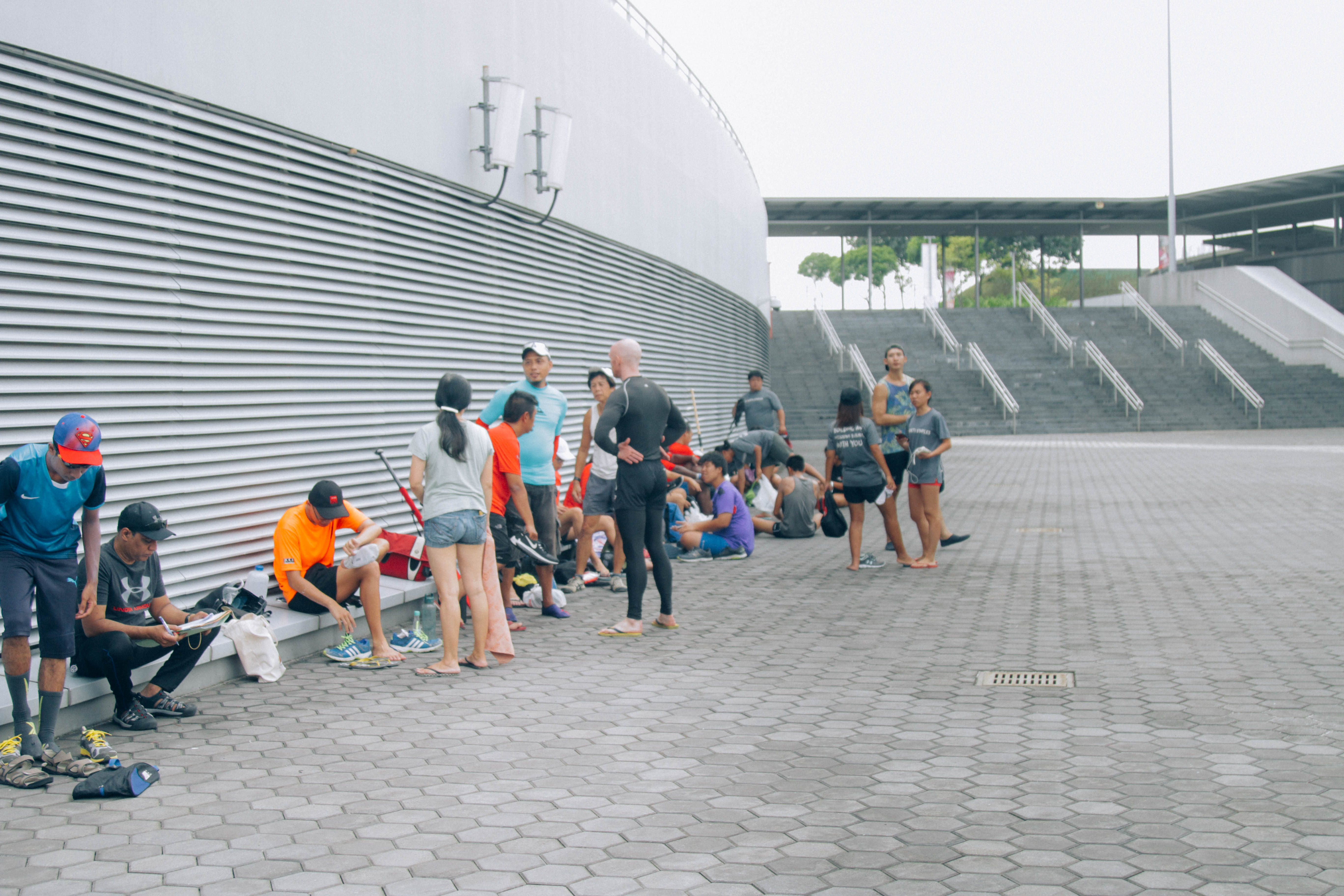 Photo by Andrew Koay
Photo by Andrew Koay
Despite the gloomy skies above, spirits among the team are high — as betrayed by the beaming smiles on the paddlers.
The team comprises of 20 paddlers with disabilities and 23 volunteers who help out and paddle with the team.
"For this team, you literally see everyone," says Ng, who goes on to explain that a variety of disabilities — from intellectual to sensory disabilities — are represented in the Different Dragons.
"I like to tell people, Different Dragons is actually a very nice reflection or representation of what an inclusive society could look like. Right because you have all kinds of individuals and volunteers as well and they're just coming together and they're just having fun, right? And we're all existing in the same space which is actually do-able."
 Photo by Andrew Koay
Photo by Andrew Koay
Lam and Ng gather the team and brief them before the whole crew makes the short walk to Kallang Basin — the location of the Singapore Dragon Boat Association.
Today they are going to be concentrating on each individual's paddling technique.
 Kallang Basin. Photo by Andrew Koay
Kallang Basin. Photo by Andrew Koay
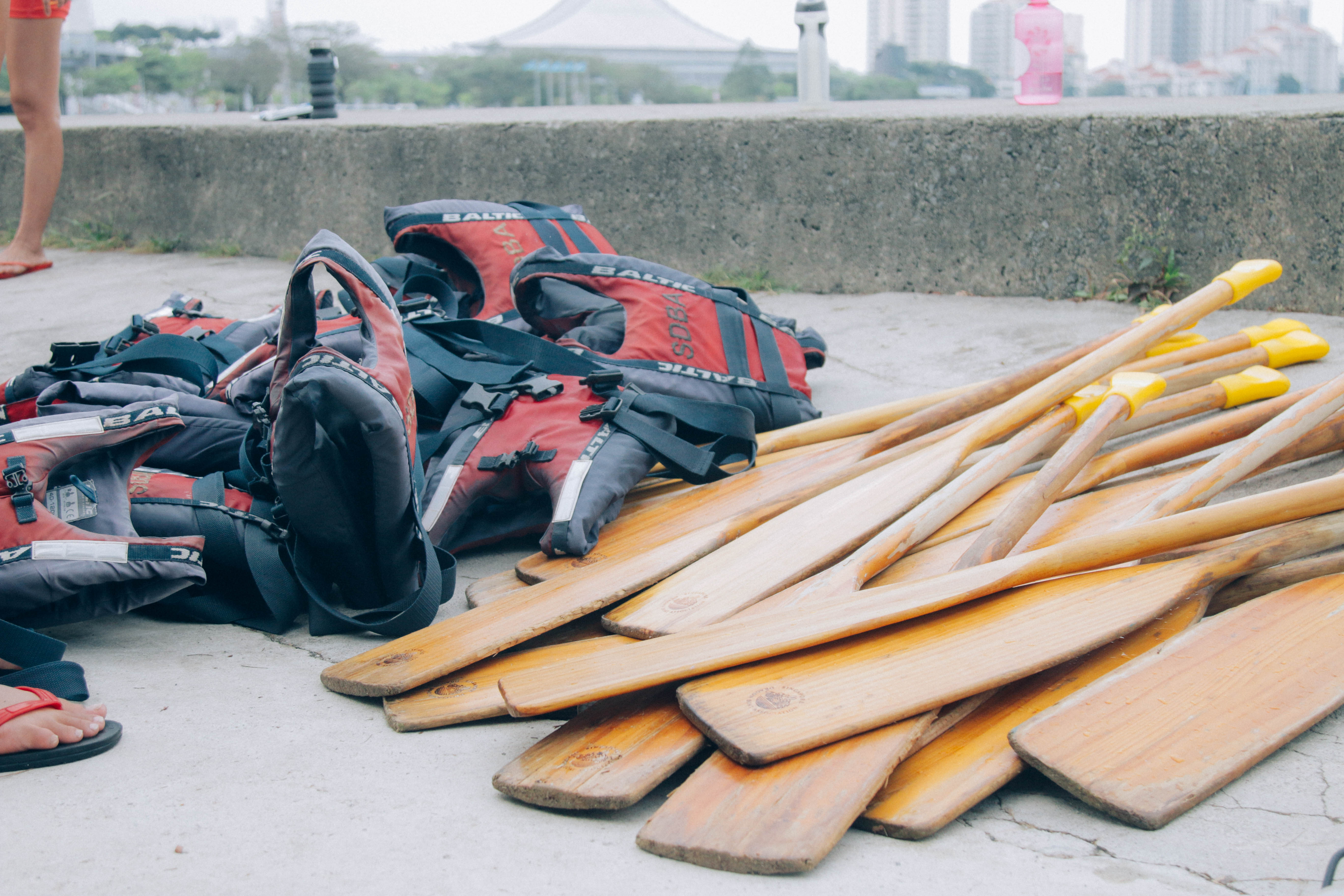 Photo by Andrew Koay
Photo by Andrew Koay
Once everyone has grabbed their life jackets and paddles, the more advanced paddlers hop into the dragon boats while the rest of the squad will meet them on the banks of the basin.
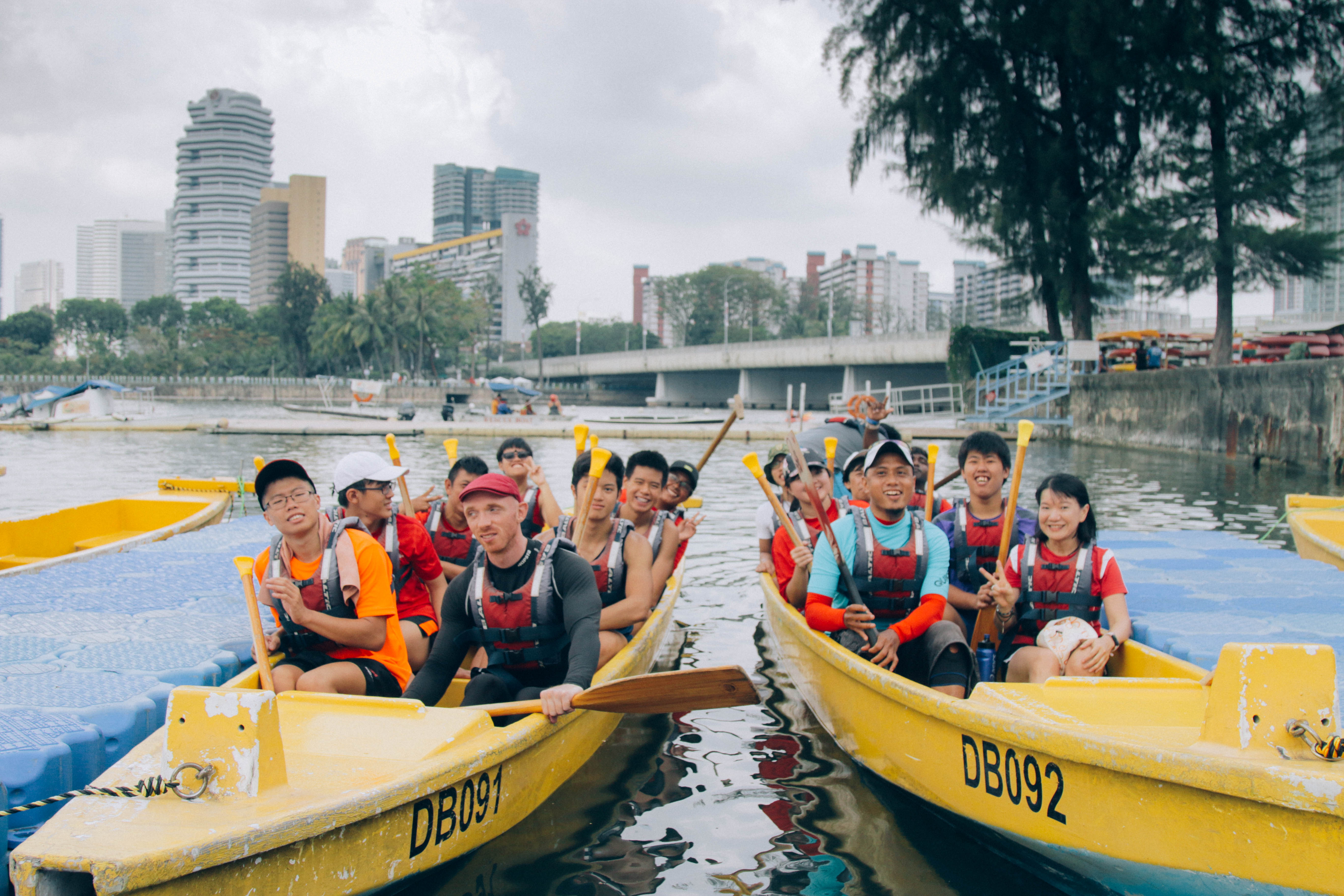 Photo by Andrew Koay
Photo by Andrew Koay
Among the paddlers on one of the boats, is Halimi, who is blind.
He keeps in sync with the help of his teammates who count the strokes for him, and also by listening to the sound of paddles hitting the water.
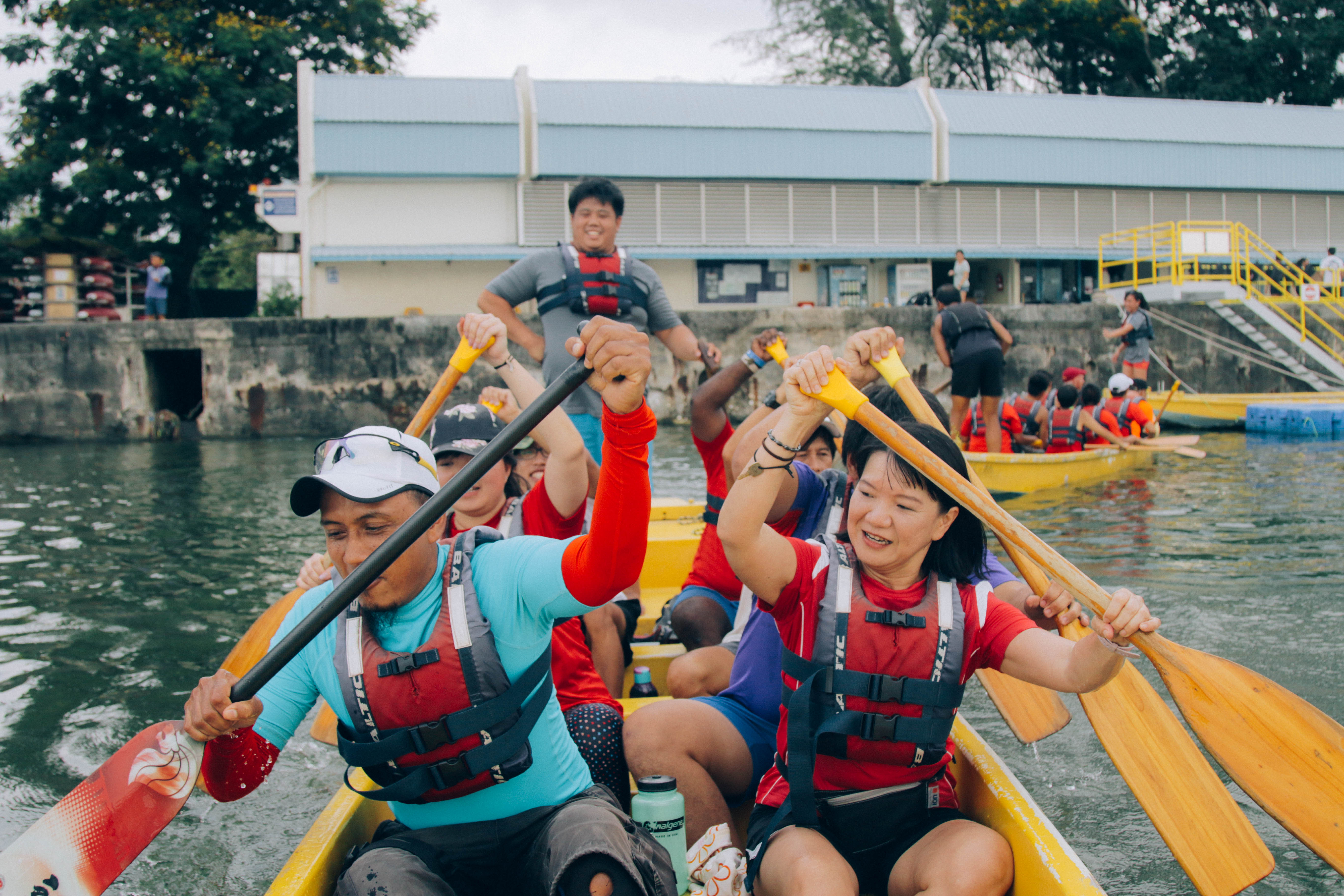 Halimi (on the left, in blue). Photo by Andrew Koay
Halimi (on the left, in blue). Photo by Andrew Koay
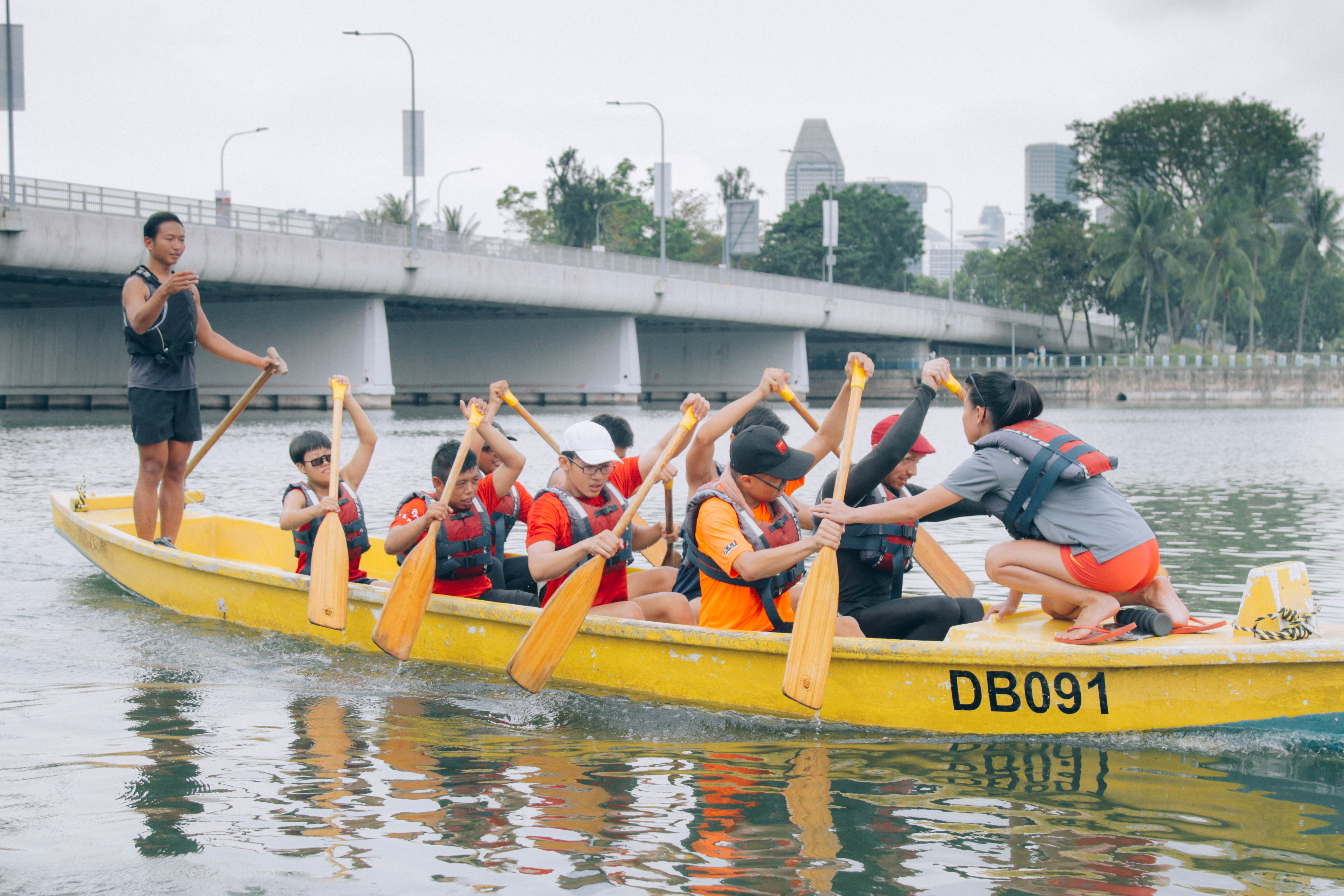 Photo by Andrew Koay
Photo by Andrew Koay
Once the boats have reached the banks, the paddlers hop out. Its time for some one-on-one coaching with Lam and Ng.
Ng is coaching Cheng Hwee, who has an intellectual disability. He loves taking photos and grabs every opportunity he can to pose for the camera.
However, there's no time for posing when Ng is coaching. Cheng Hwee listens keenly to his coach's instructions and performs his set of strokes with minimal fuss.
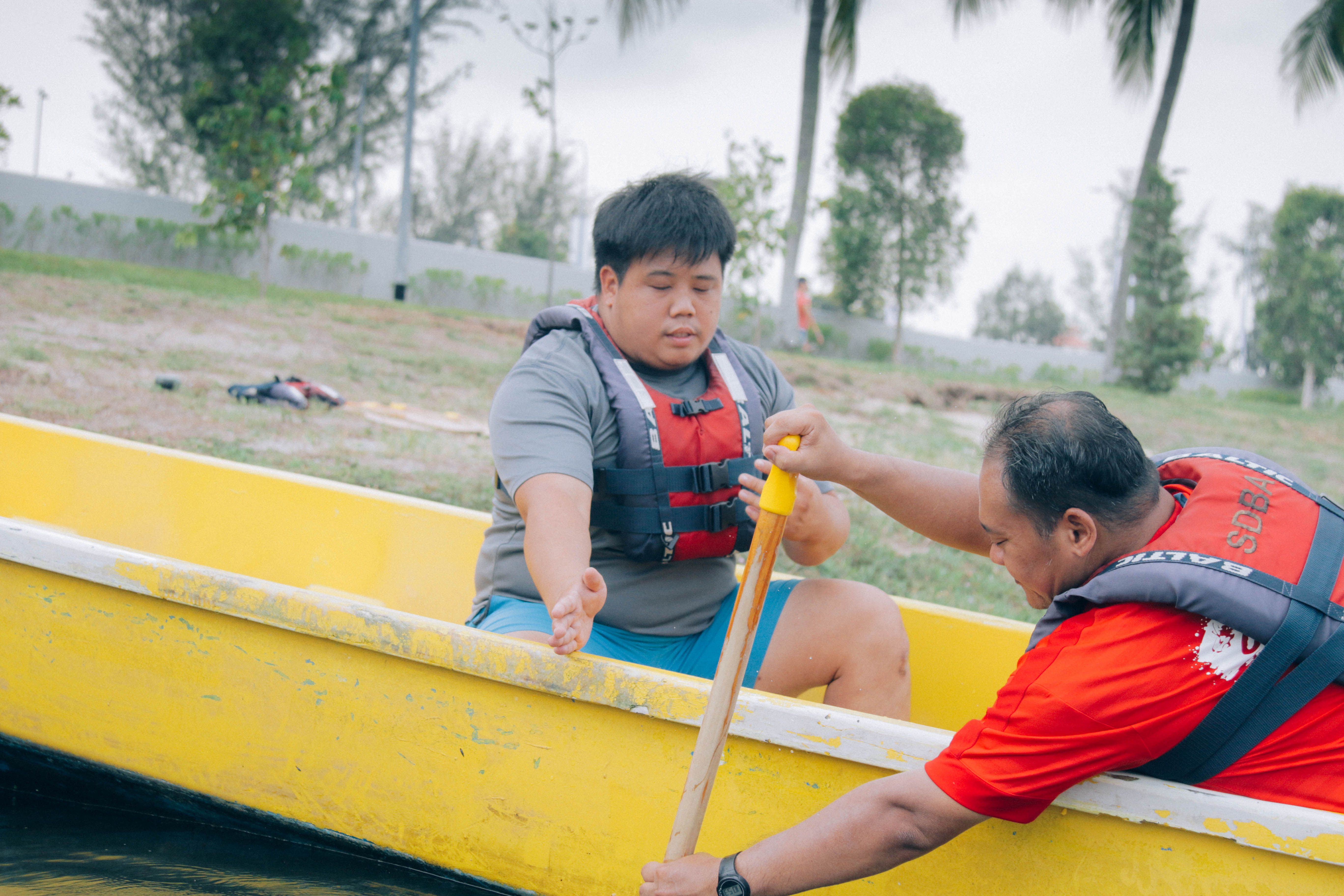 Ng (left) coaches Cheng Hwee on his technique. Photo by Andrew Koay
Ng (left) coaches Cheng Hwee on his technique. Photo by Andrew Koay
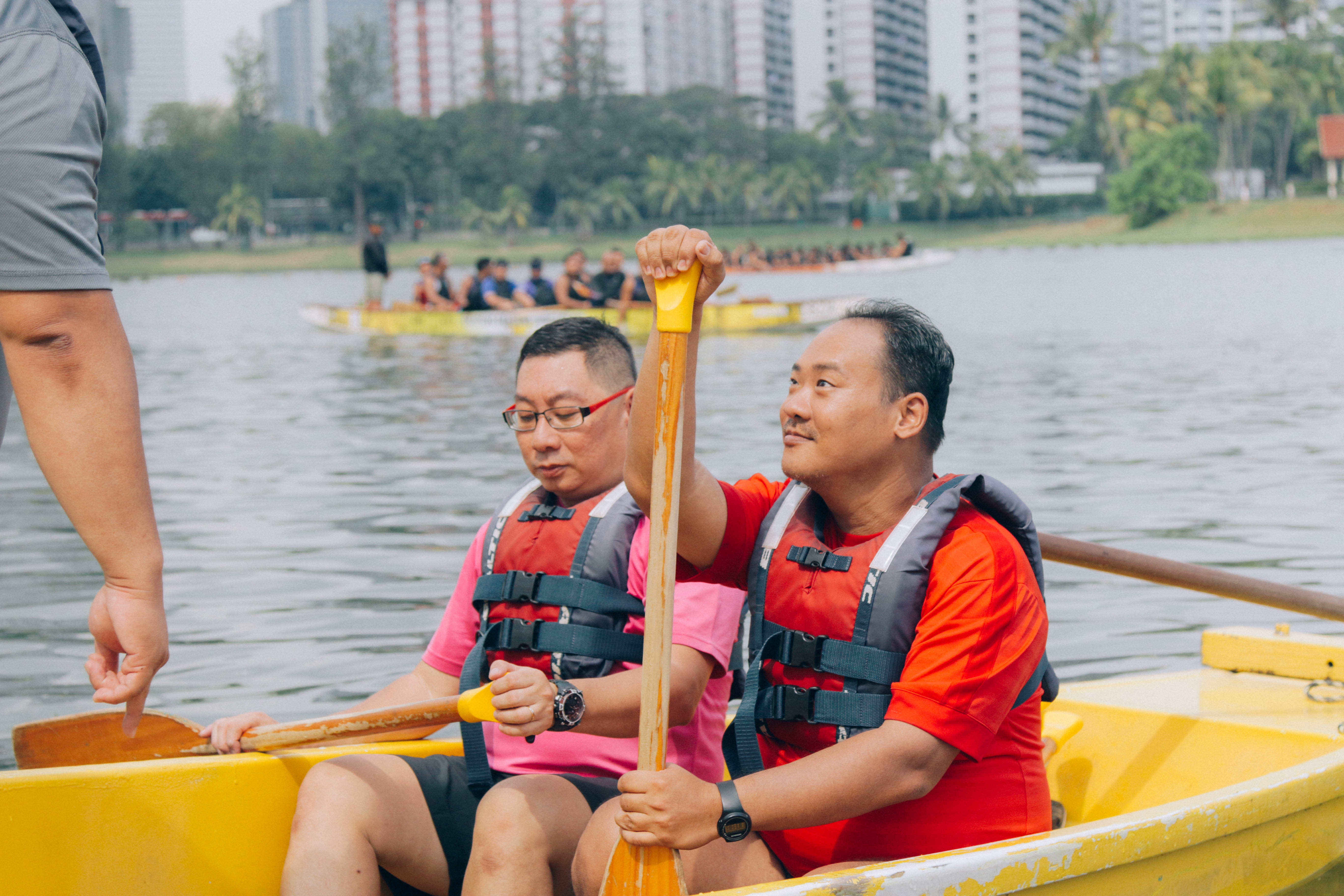 Photo by Andrew Koay
Photo by Andrew Koay
Lam explains the thinking that Ng had behind a dragon boat team for PWDs:
“So because both of us were dragon boaters, [Ng] had this idea and he said when we tell people we are dragon boaters, the kind of impression and the comments that we get is like ‘oh, it’s so tiring, it’s so draining, it’s such a tough sport’.
And to Ryan, he was like if we can train up an entire team of people with disabilities in dragon boating and they can perform as well as anyone else, that will really be making a statement that they’re not different.”
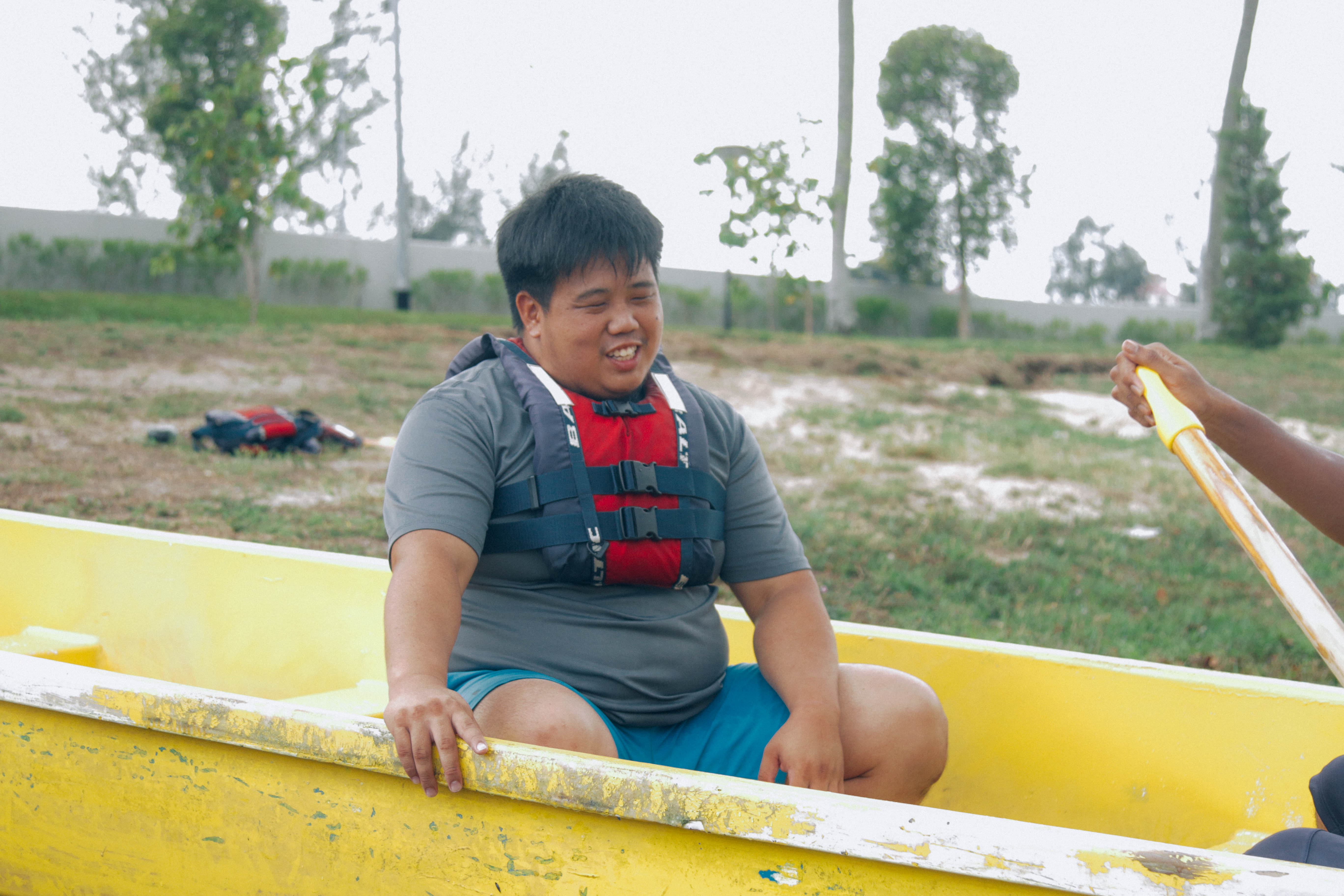 Photo by Andrew Koay
Photo by Andrew Koay
On her boat, Lam is communicating with Richard, a deaf paddler, in sign language.
Throughout the training session, she's been getting paddlers to concentrate on their technique, advising them on which muscles they should be using at different points in their stroke.
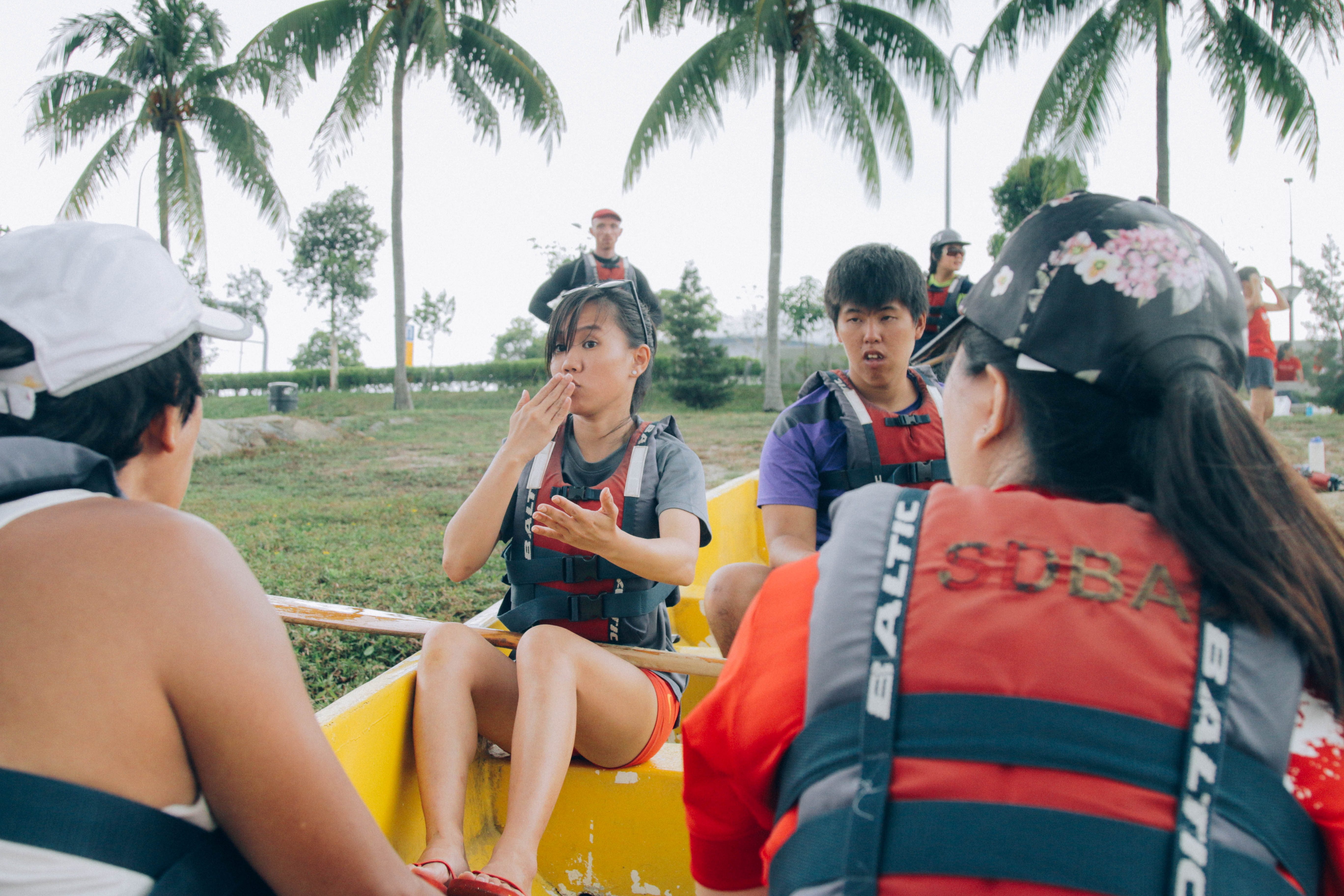 Lam (second from the left) communicates in sign language with Richard (left). Photo by Andrew Koay
Lam (second from the left) communicates in sign language with Richard (left). Photo by Andrew Koay
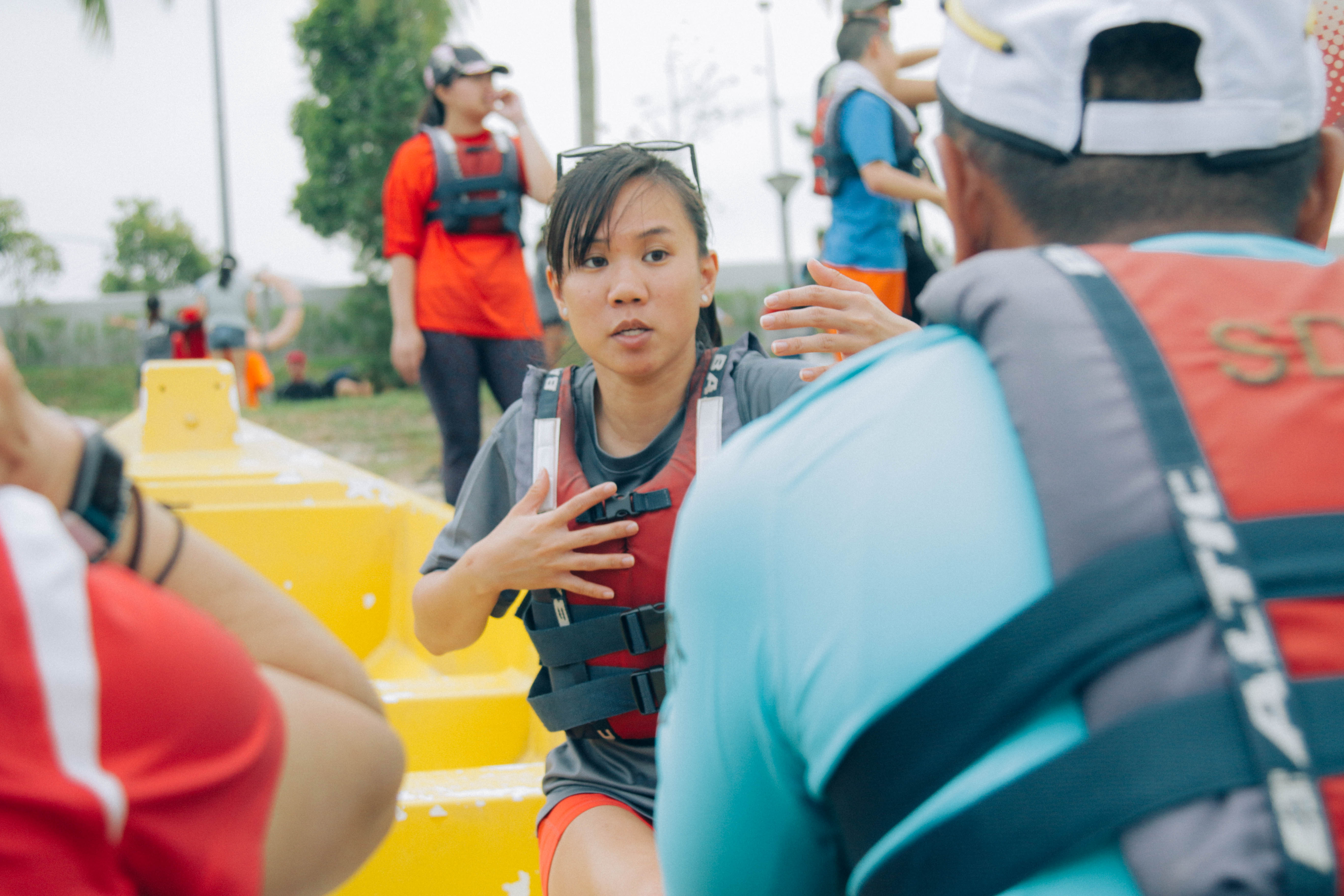 Photo by Andrew Koay
Photo by Andrew Koay
When Lam is asked if it ever gets frustrating, she pauses to think for a second:
"The frustration is not on them. I get frustrated with myself sometimes after training because I feel like I've exhausted all my options of knowing how to teach them a particular concept or like a skill or something, and it's still not working."
"You have to take her words with a pinch of salt," says Ng before explaining that he noticed a marked improvement in the technique of one paddler.
"That was really due to what she has done for the past few sessions."
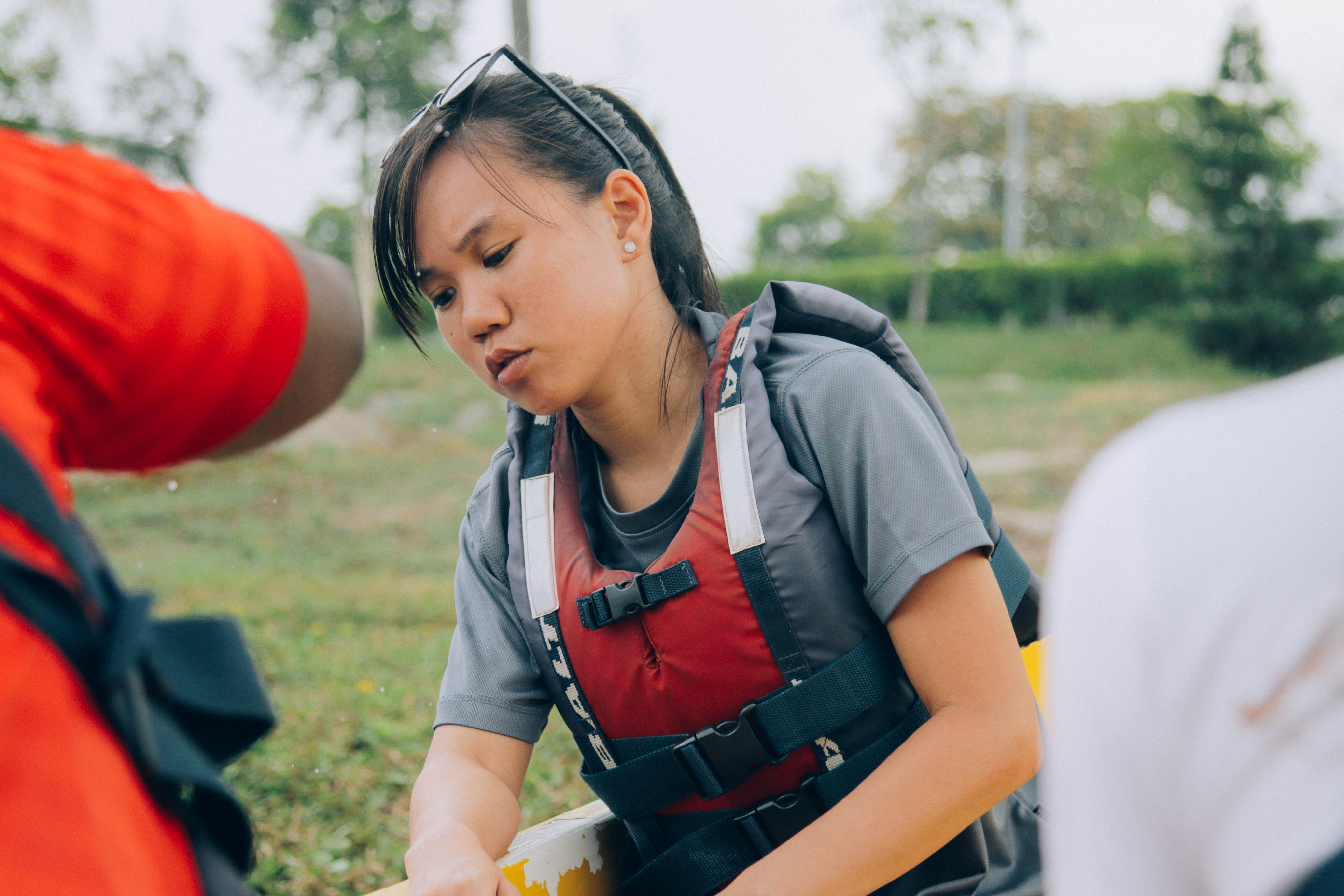 Photo by Andrew Koay
Photo by Andrew Koay
On the bank of the basin, as they await their turn, the rest of the squad goes through exercises meant to strengthen the different muscles used in a dragon boater's stroke.
The volunteers patiently guide the PWDs on their form, while performing the exercises themselves.
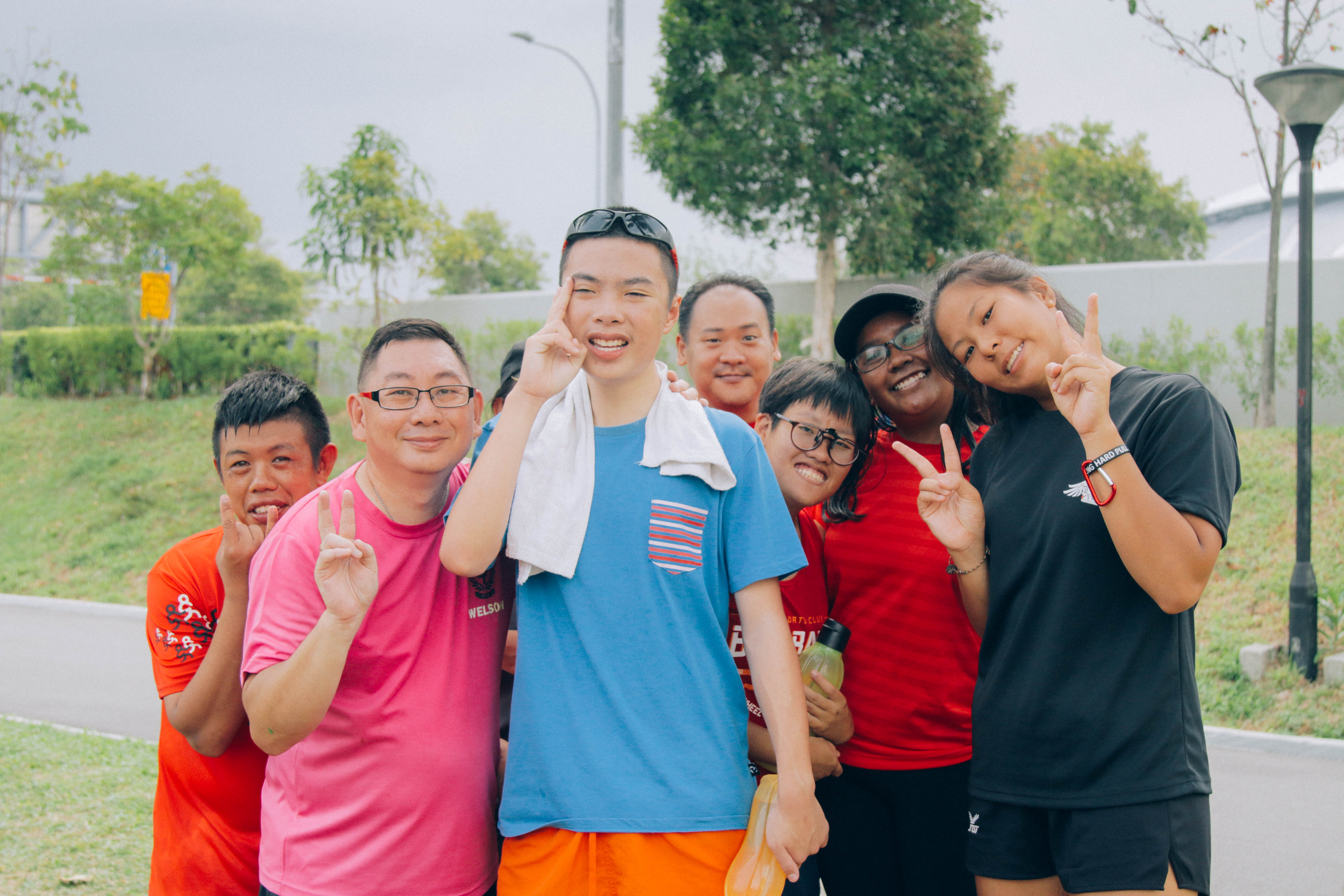 Photo by Andrew Koay
Photo by Andrew Koay
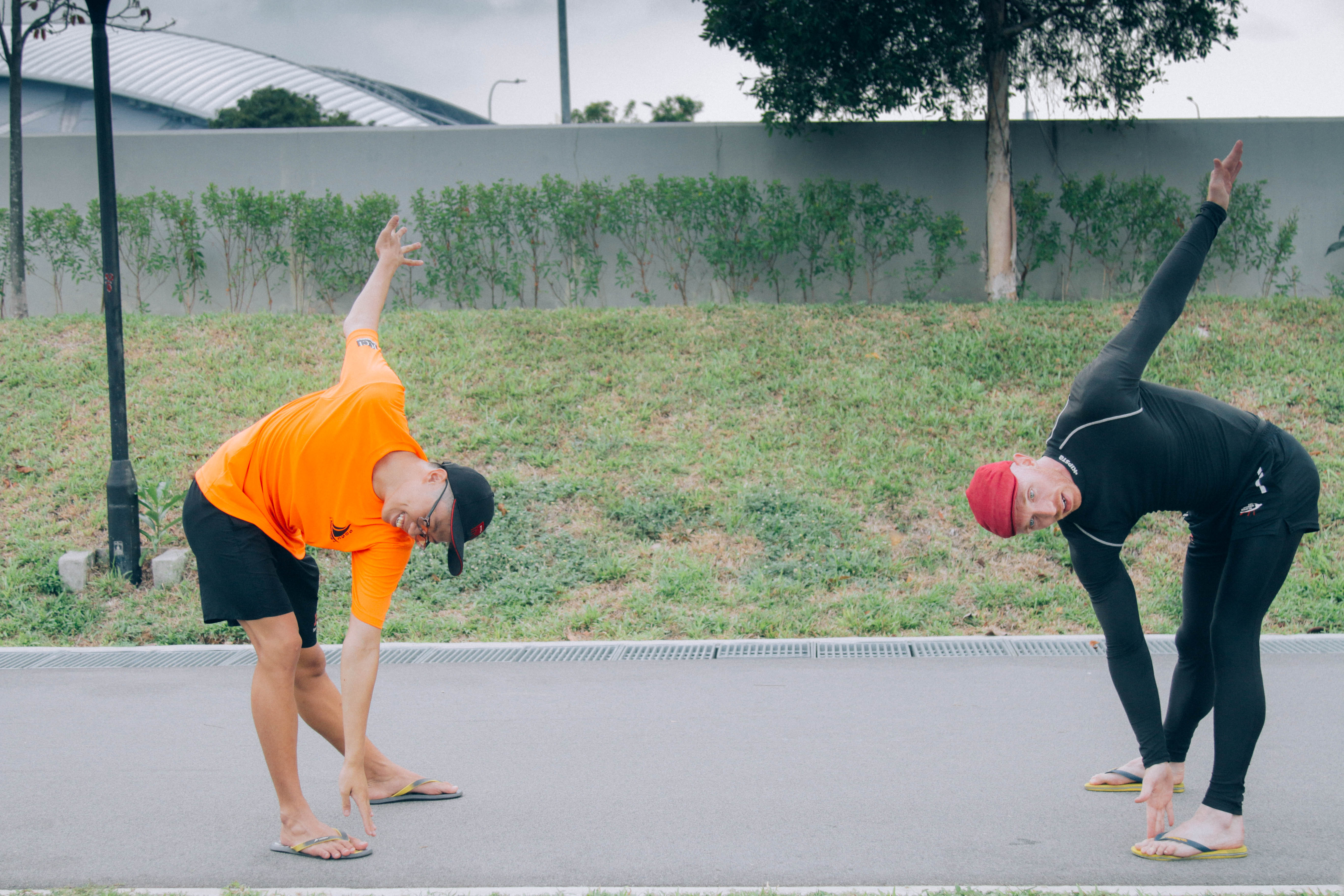 Photo by Andrew Koay
Photo by Andrew Koay
Back at the boats, there's a little bit of excitement over what has become a bit of a weekly tradition.
David, who has autism, has taken his seat on the boat. Before he can start paddling, he must first drench himself with water from the basin. He does this by splashing around with his paddle and pouring water over his head.
Lam and Ng aren't quite sure why he does this, but their theory is that it helps him to relieve his anxiety of being in the water.
Once he's sufficiently soaked, Ng approaches and the coaching can begin.
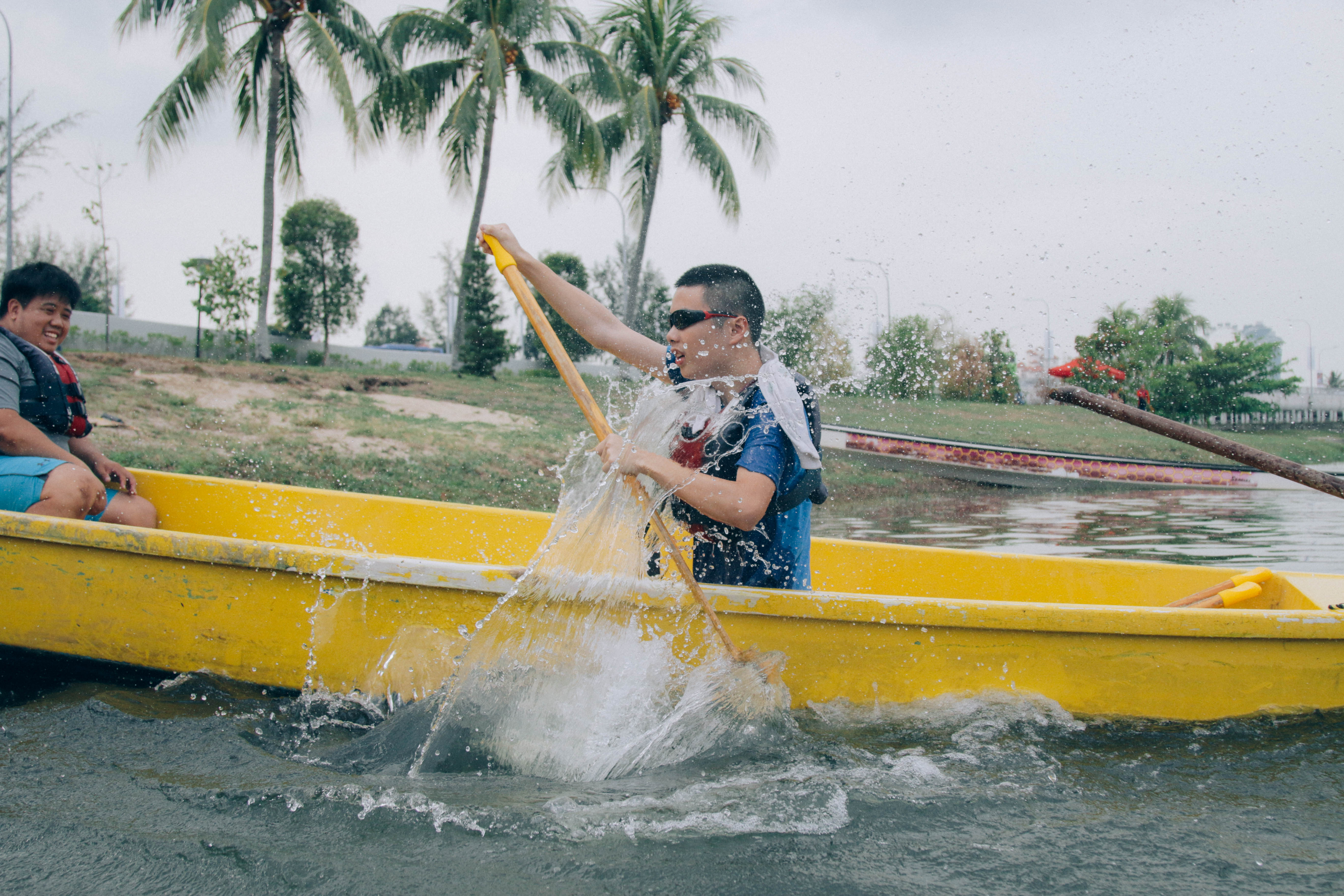 David splashes himself with water. Photo by Andrew Koay
David splashes himself with water. Photo by Andrew Koay
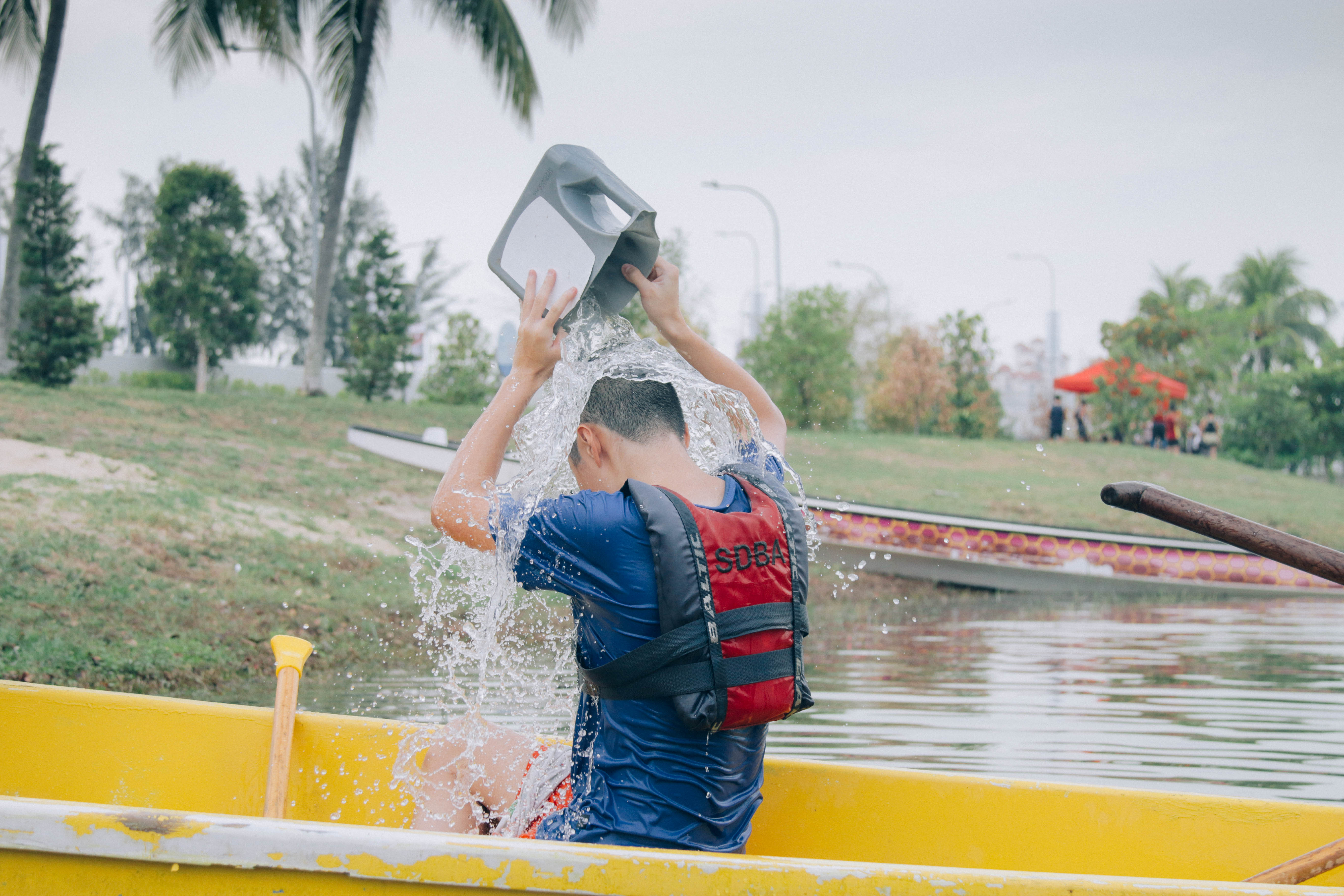 Photo by Andrew Koay
Photo by Andrew Koay
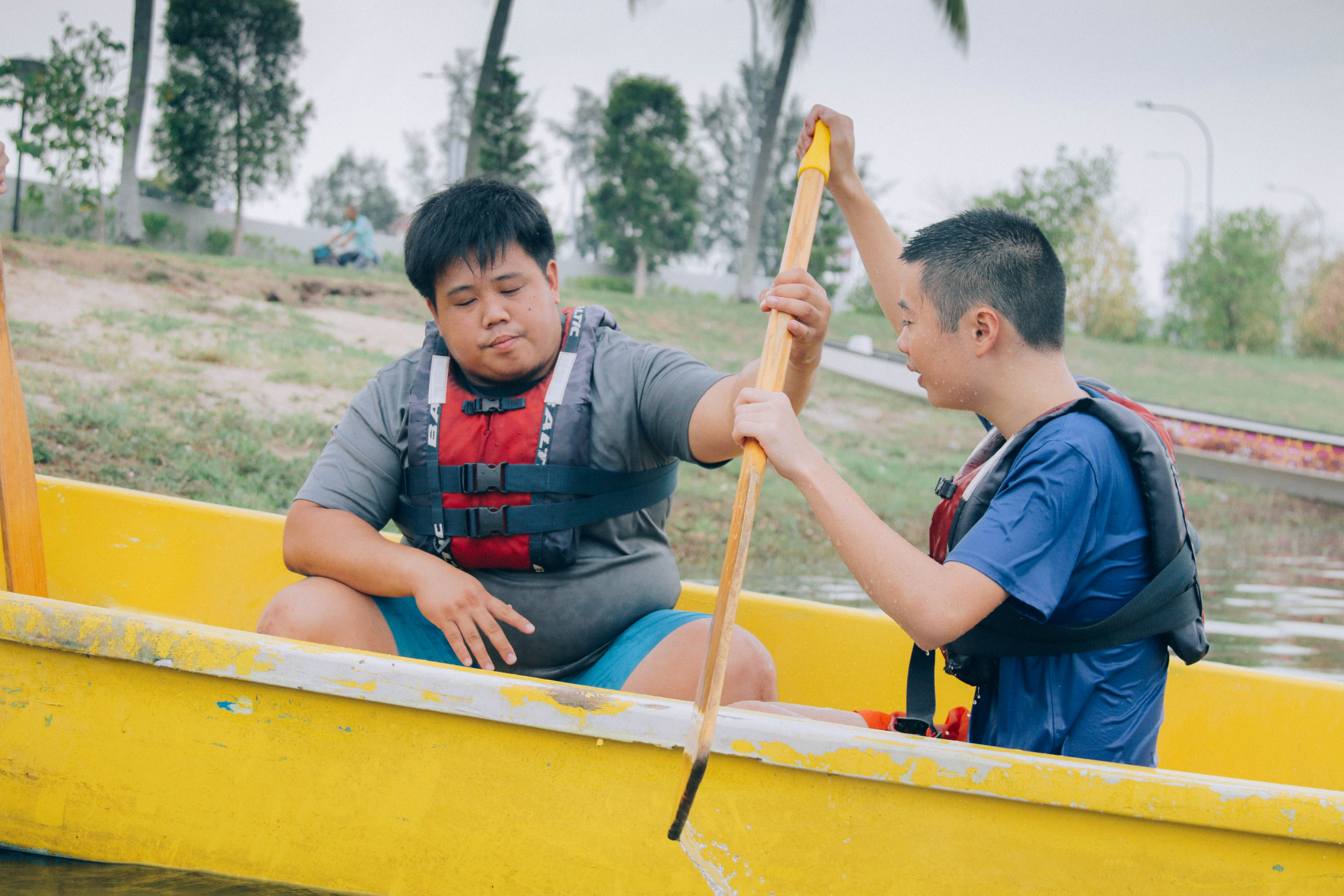 Photo by Andrew Koay
Photo by Andrew Koay
As it's threatening to rain, Lam and Ng make the decision to head back to the Singapore Dragon Boat Association.
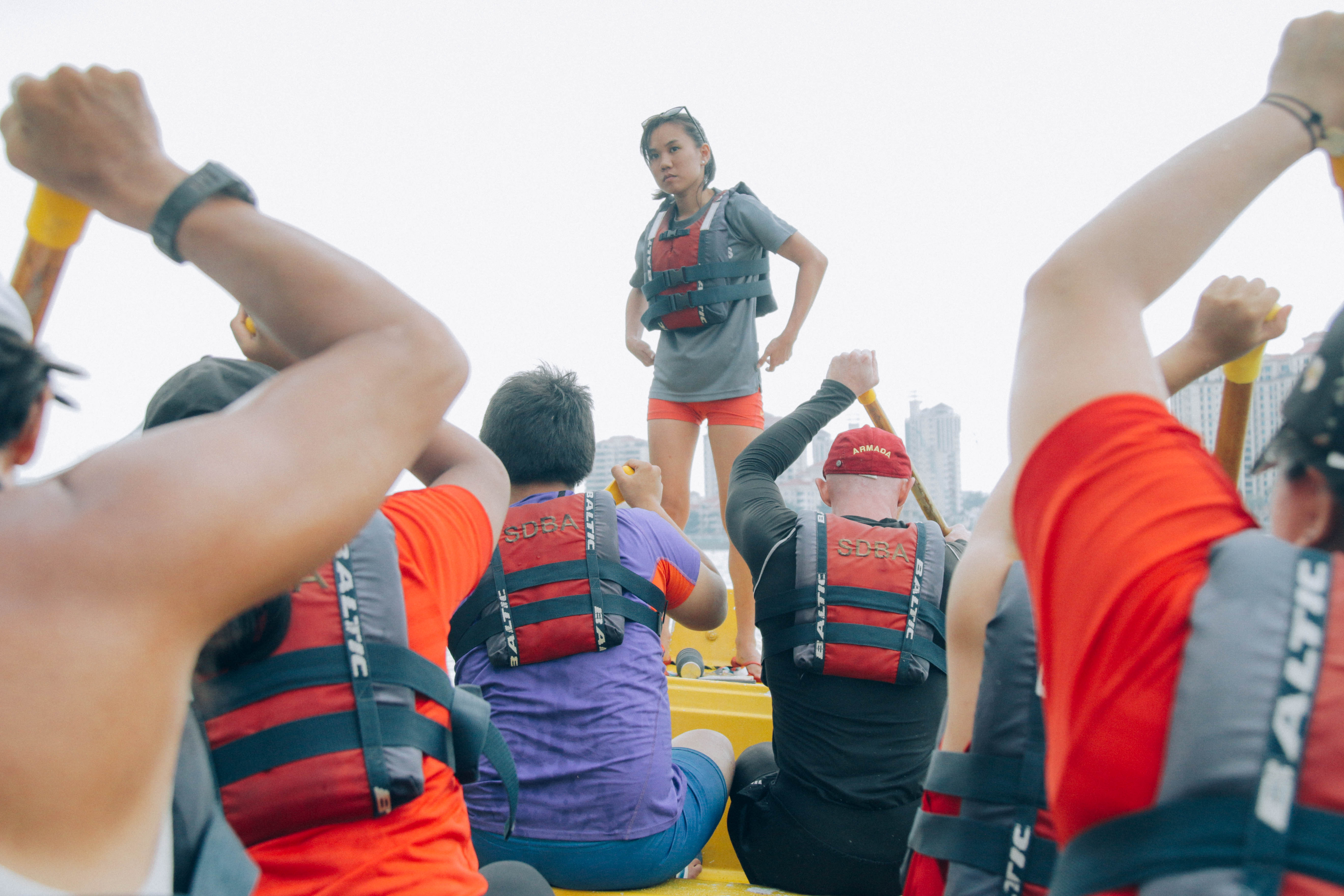 Photo by Andrew Koay
Photo by Andrew Koay
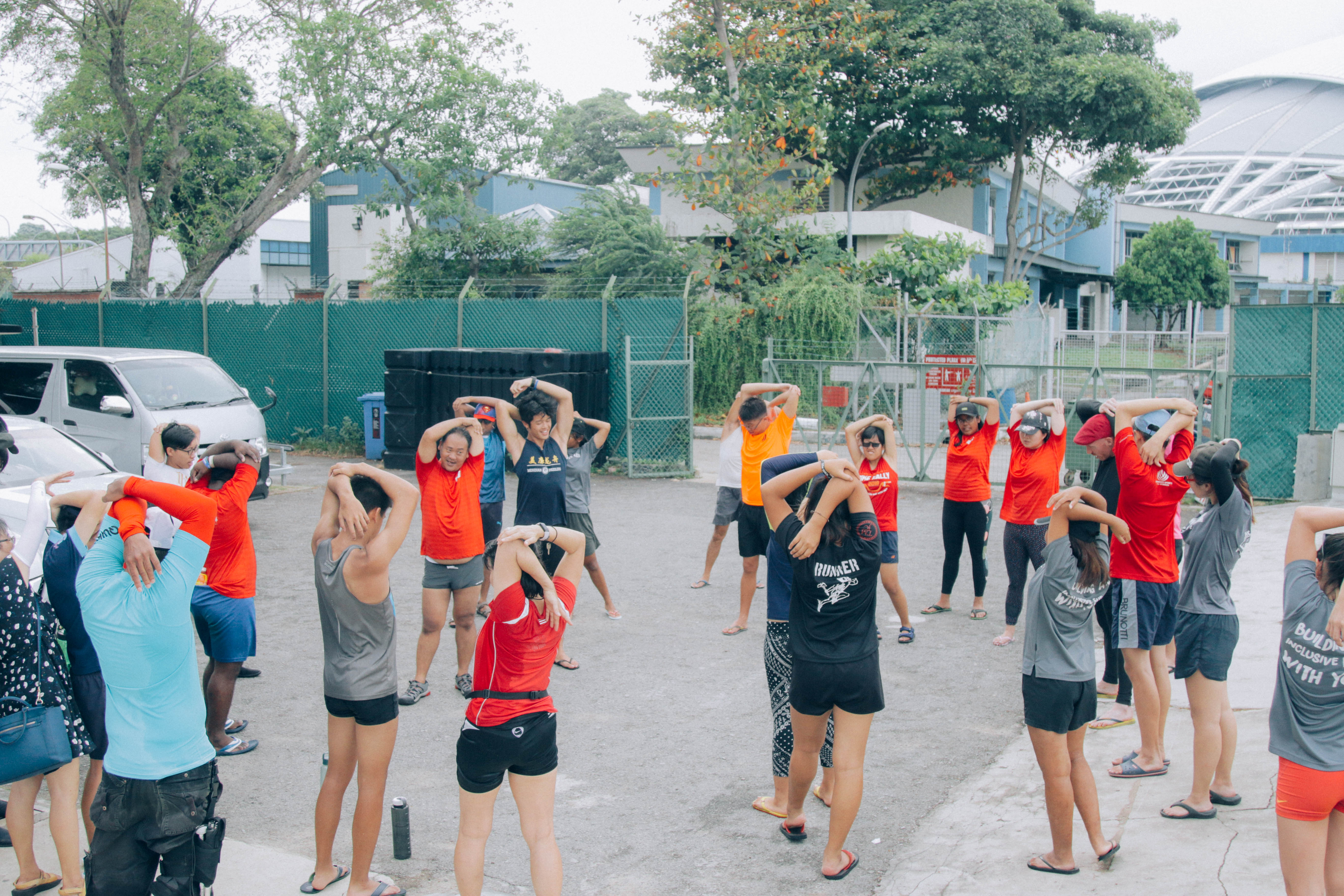 The Different Dragons cool down after training. Photo by Andrew Koay
The Different Dragons cool down after training. Photo by Andrew Koay
Even though it's time to go home, no one seems in a rush to leave, sticking around to chat and take some photos. There's a real sense of camaraderie and team spirit as the paddlers joke around and talk about their lives.
Even some of the caregivers are joining in the banter.
Ng recognises that the training is as much for the caregivers as it is for the PWDs:
"There are a lot of parents that want [to send their children for the trainings] because there are legit no programs for them out there. And this is like the only time they can have fun, meet new friends.
The parents can take a seat, sit back and relax. You'll see some of the parents they just chill in the shade and talk to each other. So those are the only times that parents actually have some time to say 'okay my kid is safe, doing something that he or she likes, and it's now my time for my own self-care.'"
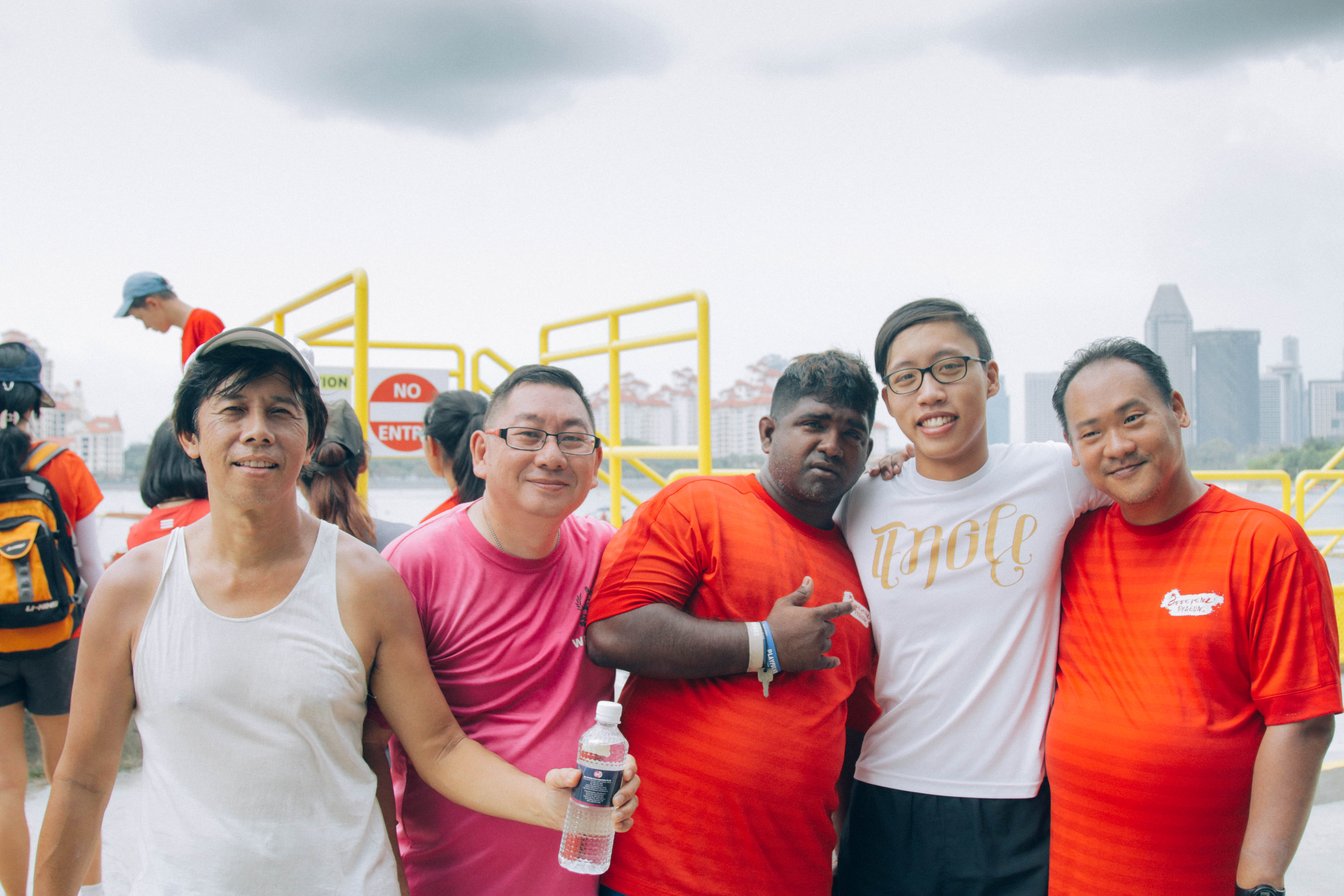 Photo by Andrew Koay
Photo by Andrew Koay
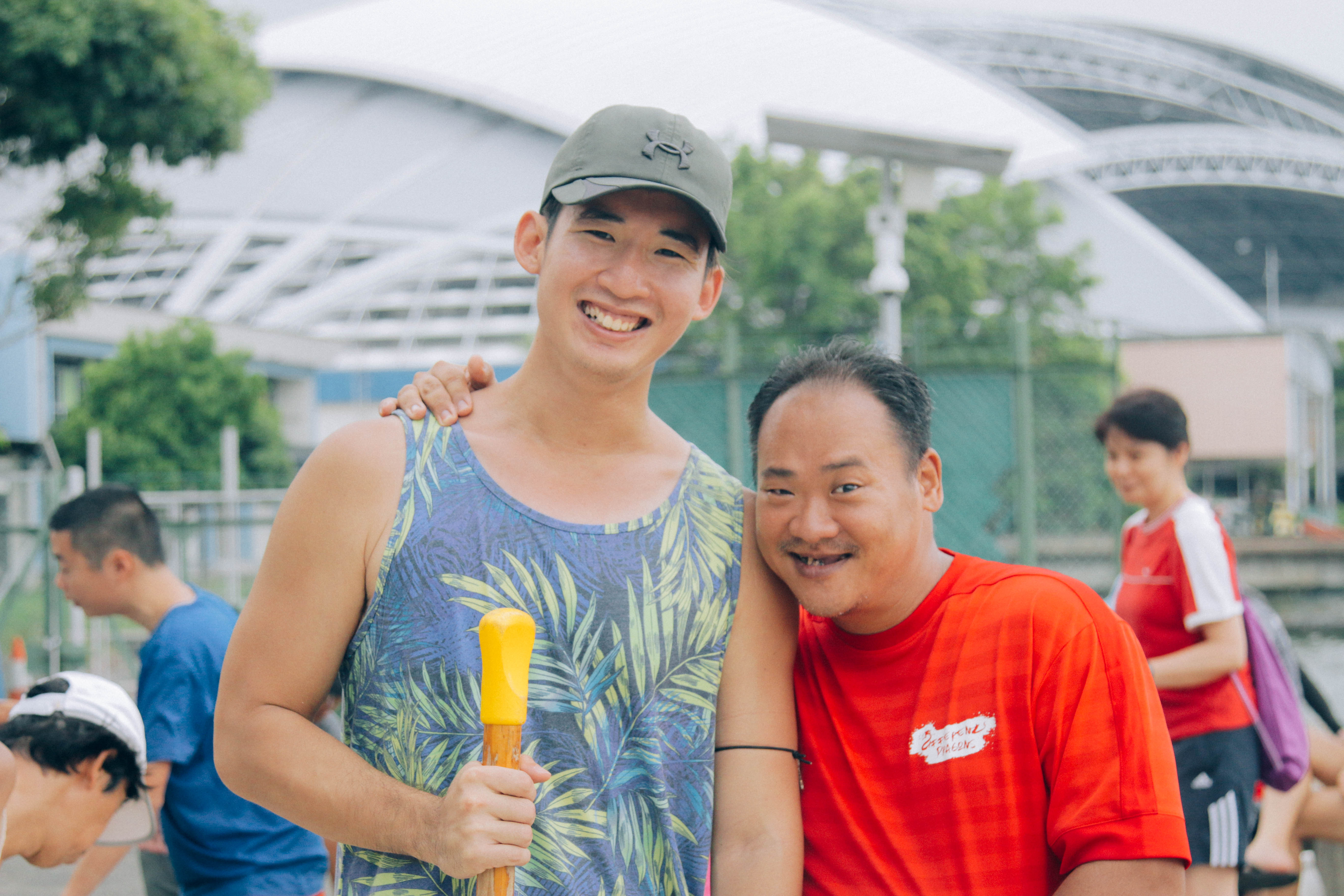 Photo by Andrew Koay
Photo by Andrew Koay
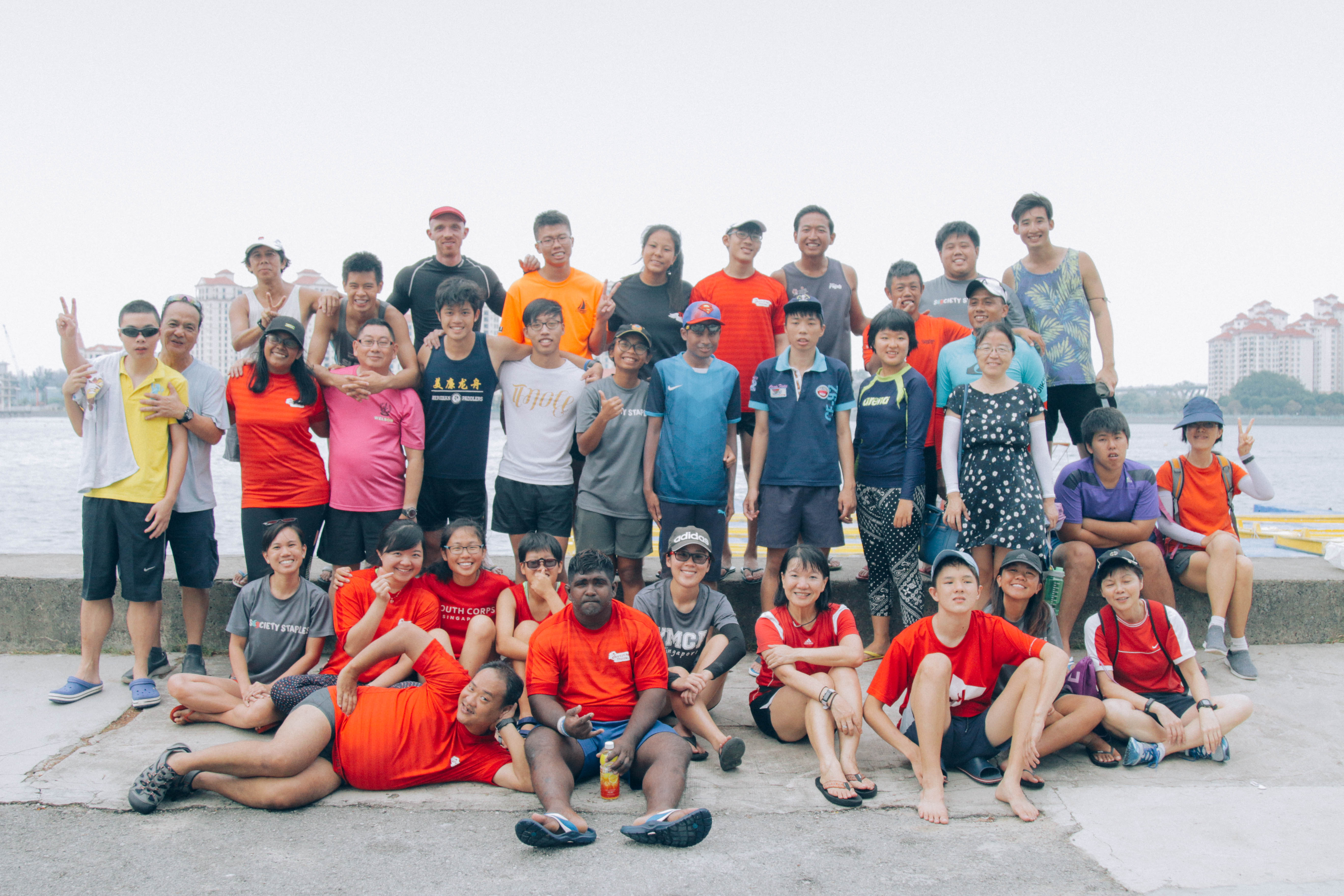 Customary group photo. Photo by Andrew Koay
Customary group photo. Photo by Andrew Koay
It's not all fun and for the sake of it though in the last two months, the Different Dragons have competed in two different races — both against crews of paddlers without disabilities.
Lam explains that while they didn't place in the first competition, it hasn't discouraged the team:
"The stage now is not so much about winning races currently, since the team is so new. But its really more about getting that race exposure and that race confidence."
And once they get past that stage?
For Ng, the goal is to make it to the International Dragon Boat Federation World Championships.
However, it seems like this year's competition might be coming a little too soon:
"When we wanna go for World Champs, we want to be able to send a crew that is ready."
 The team behind the Different Dragons. (From L to R) Lam, Ng, Bernice Lim, and Nurul Syahindah Binte Tumadi. Photo by Andrew Koay
The team behind the Different Dragons. (From L to R) Lam, Ng, Bernice Lim, and Nurul Syahindah Binte Tumadi. Photo by Andrew Koay
You can support the Different Dragons by either:
- Monetary sponsorship for training sessions and race participation fees
- In-kind donations (team jerseys, paddles, personal flotation devices)
- Join them as a volunteer
- Refer PWDs who are keen to join the team
Check out their website or drop them an email at [email protected] to find out more.
Read more about Society Staples here:
Top photo by Andrew Koay
If you like what you read, follow us on Facebook, Instagram, Twitter and Telegram to get the latest updates.
